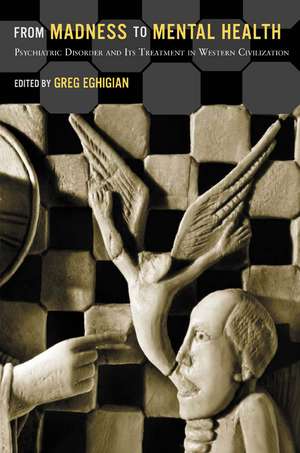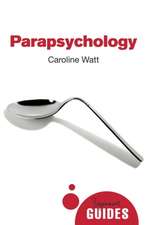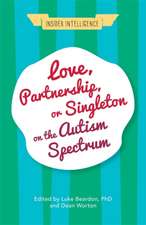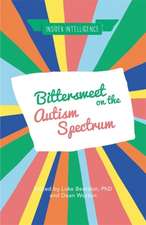From Madness to Mental Health: Psychiatric Disorder and Its Treatment in Western Civilization
Editat de Greg Eghigian Contribuţii de Gail Hornsteinen Limba Engleză Paperback – 10 dec 2009
From Madness to Mental Health neither glorifies nor denigrates the contributions of psychiatry, clinical psychology, and psychotherapy, but rather considers how mental disorders have historically challenged the ways in which human beings have understood and valued their bodies, minds, and souls.
Greg Eghigian has compiled a unique anthology of readings, from ancient times to the present, that includes Hippocrates; Julian of Norwich's Revelations of Divine Love, penned in the 1390s; Dorothea Dix; Aaron T. Beck; Carl Rogers; and others, culled from religious texts, clinical case studies, memoirs, academic lectures, hospital and government records, legal and medical treatises, and art collections. Incorporating historical experiences of medical practitioners and those deemed mentally ill, From Madness to Mental Health also includes an updated bibliography of first-person narratives on mental illness compiled by Gail A. Hornstein.
Preț: 363.91 lei
Preț vechi: 383.06 lei
-5% Nou
Puncte Express: 546
Preț estimativ în valută:
69.63€ • 72.90$ • 57.62£
69.63€ • 72.90$ • 57.62£
Carte tipărită la comandă
Livrare economică 05-19 aprilie
Preluare comenzi: 021 569.72.76
Specificații
ISBN-13: 9780813546667
ISBN-10: 0813546664
Pagini: 480
Ilustrații: 14 illustrations. 10 photographs and 4 tables
Dimensiuni: 156 x 235 x 28 mm
Greutate: 0.65 kg
Ediția:None
Editura: Rutgers University Press
Colecția Rutgers University Press
Locul publicării:United States
ISBN-10: 0813546664
Pagini: 480
Ilustrații: 14 illustrations. 10 photographs and 4 tables
Dimensiuni: 156 x 235 x 28 mm
Greutate: 0.65 kg
Ediția:None
Editura: Rutgers University Press
Colecția Rutgers University Press
Locul publicării:United States
Notă biografică
Greg Eghigian is the director of the science, technology, and society program and associate professor of modern history at Pennsylvania State University. He is the author and editor of numerous books, including The Self as Project: Politics and Human Sciences in the Twentieth Century.
Cuprins
Introduction
Part I The Pneumatic Age
A. The Ancient World
The Bible, 1 Samuel (ca. 960 B.C.E.)
Euripides (484-407/6 B.C.E.), The Bacchae (ca. 404 B.C.E.)
Hippocrates (460-377 B.C.E.), Writings on Hysteria (ca. fourth century B.C.E.)
The Bible, Mark 5 (ca. 65-75 C.E.)
Soranus (ca. second century C.E.), "Madness or Insanity (Greek Mania)"
B. Medieval and Early Modern Europe
Sarabiyun Ibn Ibrahim, "Three Cases of Melancholia by Rufus of Ephesus" (ca. 873)
Ibn Sina [Avicenna] (ca. 980-1037), "Lovesickness" (First Latin translation, twelfth century)
Julian of Norwich (1342-ca. 1416), Revelations of Divine Love (ca. 1390s)
John Brydall (ca. 1635-ca. after 1705), The Law Relating to Natural Fools, Mad-Folks,and Lunatick Persons (1700)
Hermann Boerhaave (1668-1738), "Aphorisms" (1765)
William Cullen (1710-1790), Lectures on the Materia Medica (1773)
C. Enlightenment, Romanticism, and Reform
Part II The Age of Optimism
Philippe Pinel (1745-1826), A Treatise on Insanity (1801)
Johann Christian August Heinroth (1773-1843), Textbook on Disturbances of Mental Life (1818)
Jean Etienne Esquirol (1772-1840), "Monomania" (1838)
Dorothea Dix (1802-1887), Memorial to the Legislature of Massachusetts (1843)
The M'Naughten Rules (1843)
B. The Asylum
The Opal: A Monthly Periodical of the State Lunatic Asylum, Devoted to Usefulness, Edited by the Patients of the Utica State Lunatic Asylum (1850-1860)
Limerick District Lunatic Asylum, Report of the Limerick District Lunatic Asylum for the Year Ending December 31st, 1866 (1867)
Great Britain, Office of Superintendent Government, Annual Report of the Insane Asylums in Bengal for the Year 1867 (1868)
Elizabeth P. W. Packard (1816-1897), The Prisoner's Hidden Life, or Insane Asylums Unveiled (1868)
C. Brain Science, Nerves, and Clinical Psychiatry
Nelson Sizer (1812-1897), Forty Years in Phrenology; Embracing Recollections of History, Anecdote, and Experience (1891)
George Miller Beard (1839-1883), Cases of Hysteria, Neurasthenia, Spinal Irritation, or Allied Affections (1874)
Auguste Tamburini (1848-1919), "A Theory of Hallucinations" (1881)
Richard von Krafft-Ebing (1840-1902), Psychopathia Sexualis (1892)
Jean-Martin Charcot (1825-1893), "A Tuesday Lesson: Hysteroepilepsy" (1888)
Emil Kraepelin (1856-1926), "About the Surveillance Ward at the Heidelberg Clinic for Lunatics" (1895)
Sigmund Freud (1856-1939), "The Origin and Development of Psychoanalysis" (1910)
Vincent, "Confessions of an Agoraphobic Victim (1919)
Part III The Militant Age
A. War and Neurosis
Fritz Kaufmann (1875-1941), "The Systematic Cure of Complicated Psychogenic Motor Disorders Among Soldiers in One Session" (1916)
W. H. R. Rivers (1864-1922), War Neurosis and Military Training (1918)
B. The New Focus on the Body
Anonymous, "Autopsychology of the Manic-Depressive" (1910)
Herman Lundborg (1868-1943), "The Danger of Degeneracy" (1922)
The Decision in Buck v. Bell (1927)
Julius Wagner-Jauregg (1857-1940), "The Treatment of Dementia Paralytica by Malaria Inoculation" (1927)
Hermann Simon (1867-1947), Active Therapy in the Lunatic Facility (1929)
Anonymous, "Insulin and I" (1940)
Walter Freeman (1895-1972) and James W. Watts (1904-1994), "Psychosurgery During 1936-1946" (1947)
C. Psychiatric Eugenics in Germany
Fritz Lenz (1887-1976), Human Selection and Race Hygiene (1921)
Germany, "The Law for the Prevention of Hereditarily Ill Offspring" (14 July 1933)
Documents on the "T-4" and "14f13" Programs (1939-1945)
D. Mental Illness, Psychiatry, and Communism
Thea H. (b. 1923), An Experience of Psychosis in Post-World War II Germany (1949)
Records in the Case of Pyotr Grigorenko (1969-1970)
World Psychiatric Association, "Declaration of Hawaii" (1977)
E. Anti-Psychiatry, Social Psychiatry, and Deinstitutionalization
Frantz Fanon (1925-1961), "The North African Syndrome" (1952)
Thomas Szasz (b. 1920), "The Myth of Mental Illness" (1960)
Franco Basaglia (1924-1980), "The Problem of the Incident" (1968)
Great Britain Department of Health and Social Security, Better Services for the Mentally Ill (1975)
Part IV The Psychoboom
Alcoholics Anonymous (founded 1935), "The Twelve Steps" and "The Twelve Traditions"
Carl Rogers (1902-1987), "The Attitude and Orientation of the Counselor in Client Centered Therapy" (1949)
Aaron T. Beck (b. 1921), "Cognitive Therapy: Nature and Relation to Behavior Therapy" (1970)
Edna I. Rawlings and Dianne K. Carter, "The Intractable Female Patient" (1977)
Diagnostic and Statistical Manual of Mental Disorders-III, "Post-Traumatic Stress Disorder" (1980)
Psychiatrists Debate Osheroff v. Chestnut Lodge (1990)
Bibliography of First-Person Narratives of Madness in English (Fourth Edition) by Gail A. Hornstein
Part I The Pneumatic Age
A. The Ancient World
The Bible, 1 Samuel (ca. 960 B.C.E.)
Euripides (484-407/6 B.C.E.), The Bacchae (ca. 404 B.C.E.)
Hippocrates (460-377 B.C.E.), Writings on Hysteria (ca. fourth century B.C.E.)
The Bible, Mark 5 (ca. 65-75 C.E.)
Soranus (ca. second century C.E.), "Madness or Insanity (Greek Mania)"
B. Medieval and Early Modern Europe
Sarabiyun Ibn Ibrahim, "Three Cases of Melancholia by Rufus of Ephesus" (ca. 873)
Ibn Sina [Avicenna] (ca. 980-1037), "Lovesickness" (First Latin translation, twelfth century)
Julian of Norwich (1342-ca. 1416), Revelations of Divine Love (ca. 1390s)
John Brydall (ca. 1635-ca. after 1705), The Law Relating to Natural Fools, Mad-Folks,and Lunatick Persons (1700)
Hermann Boerhaave (1668-1738), "Aphorisms" (1765)
William Cullen (1710-1790), Lectures on the Materia Medica (1773)
C. Enlightenment, Romanticism, and Reform
Part II The Age of Optimism
Philippe Pinel (1745-1826), A Treatise on Insanity (1801)
Johann Christian August Heinroth (1773-1843), Textbook on Disturbances of Mental Life (1818)
Jean Etienne Esquirol (1772-1840), "Monomania" (1838)
Dorothea Dix (1802-1887), Memorial to the Legislature of Massachusetts (1843)
The M'Naughten Rules (1843)
B. The Asylum
The Opal: A Monthly Periodical of the State Lunatic Asylum, Devoted to Usefulness, Edited by the Patients of the Utica State Lunatic Asylum (1850-1860)
Limerick District Lunatic Asylum, Report of the Limerick District Lunatic Asylum for the Year Ending December 31st, 1866 (1867)
Great Britain, Office of Superintendent Government, Annual Report of the Insane Asylums in Bengal for the Year 1867 (1868)
Elizabeth P. W. Packard (1816-1897), The Prisoner's Hidden Life, or Insane Asylums Unveiled (1868)
C. Brain Science, Nerves, and Clinical Psychiatry
Nelson Sizer (1812-1897), Forty Years in Phrenology; Embracing Recollections of History, Anecdote, and Experience (1891)
George Miller Beard (1839-1883), Cases of Hysteria, Neurasthenia, Spinal Irritation, or Allied Affections (1874)
Auguste Tamburini (1848-1919), "A Theory of Hallucinations" (1881)
Richard von Krafft-Ebing (1840-1902), Psychopathia Sexualis (1892)
Jean-Martin Charcot (1825-1893), "A Tuesday Lesson: Hysteroepilepsy" (1888)
Emil Kraepelin (1856-1926), "About the Surveillance Ward at the Heidelberg Clinic for Lunatics" (1895)
Sigmund Freud (1856-1939), "The Origin and Development of Psychoanalysis" (1910)
Vincent, "Confessions of an Agoraphobic Victim (1919)
Part III The Militant Age
A. War and Neurosis
Fritz Kaufmann (1875-1941), "The Systematic Cure of Complicated Psychogenic Motor Disorders Among Soldiers in One Session" (1916)
W. H. R. Rivers (1864-1922), War Neurosis and Military Training (1918)
B. The New Focus on the Body
Anonymous, "Autopsychology of the Manic-Depressive" (1910)
Herman Lundborg (1868-1943), "The Danger of Degeneracy" (1922)
The Decision in Buck v. Bell (1927)
Julius Wagner-Jauregg (1857-1940), "The Treatment of Dementia Paralytica by Malaria Inoculation" (1927)
Hermann Simon (1867-1947), Active Therapy in the Lunatic Facility (1929)
Anonymous, "Insulin and I" (1940)
Walter Freeman (1895-1972) and James W. Watts (1904-1994), "Psychosurgery During 1936-1946" (1947)
C. Psychiatric Eugenics in Germany
Fritz Lenz (1887-1976), Human Selection and Race Hygiene (1921)
Germany, "The Law for the Prevention of Hereditarily Ill Offspring" (14 July 1933)
Documents on the "T-4" and "14f13" Programs (1939-1945)
D. Mental Illness, Psychiatry, and Communism
Thea H. (b. 1923), An Experience of Psychosis in Post-World War II Germany (1949)
Records in the Case of Pyotr Grigorenko (1969-1970)
World Psychiatric Association, "Declaration of Hawaii" (1977)
E. Anti-Psychiatry, Social Psychiatry, and Deinstitutionalization
Frantz Fanon (1925-1961), "The North African Syndrome" (1952)
Thomas Szasz (b. 1920), "The Myth of Mental Illness" (1960)
Franco Basaglia (1924-1980), "The Problem of the Incident" (1968)
Great Britain Department of Health and Social Security, Better Services for the Mentally Ill (1975)
Part IV The Psychoboom
Alcoholics Anonymous (founded 1935), "The Twelve Steps" and "The Twelve Traditions"
Carl Rogers (1902-1987), "The Attitude and Orientation of the Counselor in Client Centered Therapy" (1949)
Aaron T. Beck (b. 1921), "Cognitive Therapy: Nature and Relation to Behavior Therapy" (1970)
Edna I. Rawlings and Dianne K. Carter, "The Intractable Female Patient" (1977)
Diagnostic and Statistical Manual of Mental Disorders-III, "Post-Traumatic Stress Disorder" (1980)
Psychiatrists Debate Osheroff v. Chestnut Lodge (1990)
Bibliography of First-Person Narratives of Madness in English (Fourth Edition) by Gail A. Hornstein
Recenzii
"There is no comparable sourcebook dealing with mental illness in Western society and this collection of texts fills an existing void."
"Mental illness has long been one of the most baffling phenomena known to us. It is devastating for the individual suffering from it and incomprehensible for those around him or her. This exquisite volume brings together a number of essential texts in the history of psychiatry, highlighting the changing ideas of physicians and the experience of madness. It is an invaluable aid to students in the history of psychiatry, psychology, medicine, and the humanities."
"A rich and thought-provoking collection of historical sources that remind us of the limitations of our own passing perspectives on madness and mental health."
"There is no real shortage of histories of psychiatry, but there is nothing comparable to Eghigian's compilation of key historical source texts that illuminate the changing concepts of constructs of mental disorders over time in From Madness to Mental Health."
"This is an invaluable collection, highly recommended for both students and mental health researchers, as a sourcebook for ongoing study of the history of the idea of mental illness and its treatment."
Descriere
In From Madness to Mental Health, Greg Eghigian has compiled a unique anthology of readings, from ancient times to the present, which also includes an updated bibliography of first-person narratives on mental illness compiled by Gail A. Hornstein. This work neither glorifies nor denigrates the contributions of psychiatry, clinical psychology, and psychotherapy, but rather considers how mental disorders have historically challenged the ways in which human beings have understood and valued their bodies, minds, and souls.












